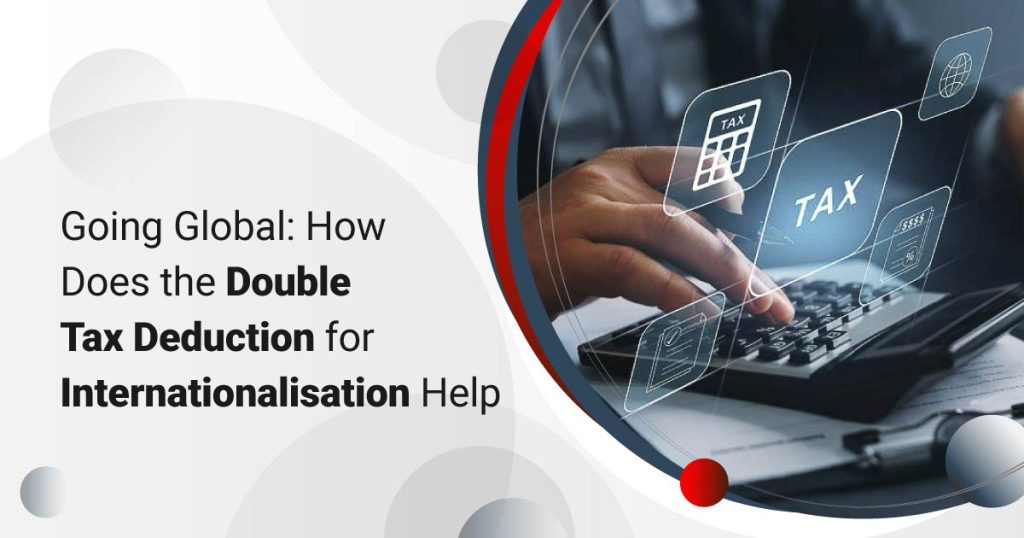As globalisation continues to reshape the business landscape more so after COVID-19, companies are increasingly expanding their operations beyond their home countries. They do so to tap into new markets, unlock growth opportunities, and gain a competitive edge, especially through e-commerce
In this blog, we explore Singapore’s Double Tax Deduction for Internationalisation (DTDi) scheme, and how it propels these firms to expand out of their motherland.
Why is it Beneficial for Companies to Go Global?
Here are some reasons why it makes sense for businesses to internationalise:
Increased Market Potential
By expanding into international markets, a company can tap into new customer bases and access a larger pool of potential consumers. This can lead to increased sales and revenue streams.
Economies of Scale
Internationalisation often leads to economies of scale, allowing companies to optimise their production processes, reduce costs, and increase profitability. This can be achieved through centralised procurement, standardised operations, and leveraging global supply chains.
Diversification
Internationalisation allows companies to diversify their operations and reduce dependence on a single market. This helps mitigate risks associated with economic growth or changes in local market conditions, such as the bear market during the aftermath of COVID-19.
Competitive Advantage
Entering new markets enables companies to gain a competitive edge by introducing innovative products, technologies, and business practices. It also provides an opportunity to learn from and adapt to different market dynamics and consumer preferences.
What is the Double Tax Deduction for Internationalisation (DTDi)?
The Singapore government recognises the importance of businesses expanding overseas and has established several incentives to motivate them to do so.
Companies in Singapore looking to expand their operations overseas can take advantage of the DTDi scheme which supports the activities of the company through the key stages of a company’s overseas growth journey.
They can enjoy a 200% tax deduction on eligible expenses incurred for international market expansion and investment development activities.
This tax deduction serves as an incentive for companies to venture into new markets and invest in their expansion efforts. By leveraging its benefits, businesses can reduce their tax burden significantly while simultaneously fueling their growth and global presence.
The DTDi offers support for activities across 4 key categories of a firm’s overseas growth, specifically in:
- Market preparation
- Market exploration
- Market promotion
- Market presence
Related Read: 6 Ways to Lower Your Corporate Taxes in Singapore Legally
What is the Market Readiness Assistance (MRA) Grant?
The MRA grant supports companies in their expansion into new overseas markets by covering the costs of:
- Market promotion
- Business establishment
- Business development
How is the DTDi Different From the MRA?
While both incentives seem similar at first glance, they differ in certain areas. For example, companies sending employees to overseas subsidiaries to perform marketing efforts can claim staff salary costs and even airfare under the DTDi, which would not be possible under the MRA.
We take a quick look at their key differences:
| Incentive | DTDi | MRA |
| Incentive Type |
|
|
| Purpose |
|
|
| Benefits |
Non-automatic DTDi Eligible businesses can receive financial support in the 4 key categories with a 200% tax deduction on qualifying expenses Automatic DTDi
Note that these will require ESG’s approval:
Companies must seek approval for eligible expenses under overseas market development trips and investment study trips for certain payments |
|
| Eligibility |
|
|
Some companies may be unaware that they can obtain tax deductions under the scheme even after incurring qualifying costs outside of the automatic DTDi.
This is where our tax experts at InCorp can help. As your tax agent, InCorp can work directly with you to identify the costs incurred relative to the activities under the non-automatic DTDi through an application to ESG to qualify for the tax deduction.
Contact our professional team to find out how we can assist your business in obtaining tax deductions today!
FAQs
What is the DTDi scheme in Singapore?
The Double Tax Deduction Scheme for Internationalisation (DTDi) is a strategic initiative designed to incentivise Singaporean businesses to expand their operations overseas.
By providing double tax deductions on eligible expenses, the scheme aims to encourage companies to venture into new markets and seize international opportunities.
What is Section 14B and 14H?
- Under Sections 14B, 14H, and 14I of the Income Tax Act 1947, eligible companies can take advantage of the double tax deduction for qualifying expenses incurred in nine specific activities.
How can I apply for the DTDi scheme?
- You can engage our qualified tax experts at InCorp to help you apply for the scheme with ease of mind.



